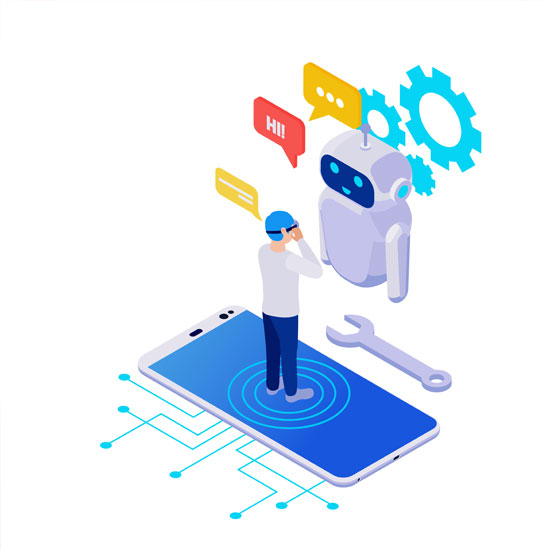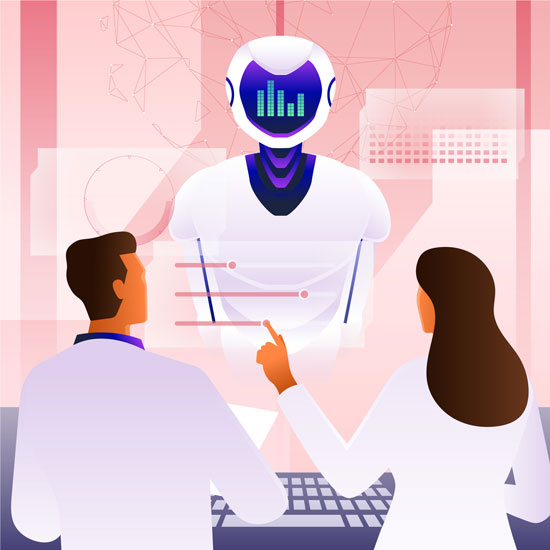Machine learning

Machine Learning (ML) is a subfield of artificial intelligence (AI) that focuses on the development of algorithms and models that enable computer systems to learn from and make predictions or decisions based on data. ML systems use statistical techniques to identify patterns, make predictions, and improve their performance over time without being explicitly programmed. Machine learning is at the forefront of technological innovation, transforming industries by enabling data-driven decision-making and automation.
Applications:
- Predictive Analytics: ML is used for predictive modeling, allowing organizations to forecast future trends, customer behavior, and outcomes in fields such as finance, marketing, and healthcare.
- Natural Language Processing (NLP): ML powers NLP applications like chatbots, language translation, sentiment analysis, and speech recognition, improving human-computer interaction.
- Computer Vision: ML enables computer vision applications, including facial recognition, object detection, image classification, and autonomous vehicles.
- Recommendation Systems: ML algorithms are used in recommendation engines, such as those employed by e-commerce platforms and streaming services, to suggest products or content to users.
- Healthcare: ML is applied in healthcare for medical diagnosis, drug discovery, personalized treatment plans, and predictive analytics for disease prevention.
- Finance: ML models are used for fraud detection, algorithmic trading, credit risk assessment, and financial market analysis.
- Manufacturing: ML enhances manufacturing through predictive maintenance, quality control, and process optimization.
- Autonomous Systems: ML is essential for the development of self-driving cars, drones, and robotics, enabling them to perceive their environments and make real-time decisions.
Advantages:
- Data-Driven Insights: ML extracts valuable insights from large datasets, providing organizations with actionable information for decision-making.
- Automation: ML automates repetitive tasks, improving efficiency and reducing the need for manual intervention.
- Predictive Capabilities: ML models can predict future outcomes, enabling proactive decision-making and risk mitigation.
- Personalization: ML-driven personalization enhances user experiences by delivering tailored content, recommendations, and services.
- Efficiency: ML algorithms optimize processes, reduce operational costs, and increase productivity.
- Scalability: ML models can scale to handle large datasets and accommodate growing business needs.
- Innovation: ML fosters innovation by enabling the development of new products, services, and applications that leverage data.
Machine Learning is a transformative technology that empowers organizations to harness the power of data, automate tasks, and make data-driven decisions. Its applications span various industries and play a critical role in driving efficiency, innovation, and competitiveness in the digital age.

